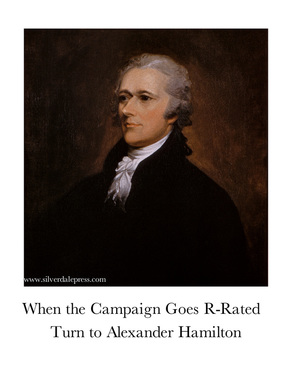 "The process of election affords a moral certainty, that the office of President will never fall to the lot of any man who is not in an eminent degree endowed with the requisite qualifications. Talents for low intrigue, and the little arts of popularity, may alone suffice to elevate a man to the first honors in a single State; but it will require other talents, and a different kind of merit, to establish him in the esteem and confidence of the whole Union, or of so considerable a portion of it as would be necessary to make him a successful candidate for the distinguished office of President of the United States." - Alexander Hamilton, The Federalist Papers, No. 68 I appreciated the very first question in town hall debate between Donald Trump and Hillary Clinton. Audience member Patrice Brock asked, "The last presidential debate could have been rated as MA, mature audiences per TV parental guidelines. Knowing that educators assign viewing the presidential debates as students’ homework, do you feel you are modeling appropriate and positive behavior for today’s youth?" As a parent, I understand Patrice's concern. Given the events of the last week, parents are nervous about allowing their children to tune into election coverage. How will it add to children's vocabularies? Shape their world views? Set an example? If you share these concerns, this might be a good week to take a break from 2016 election coverage and dial back a couple of centuries. James Madison, Alexander Hamilton, and John Jay wrote The Federalist Papers to persuade the nation to adopt the Constitution. In No. 68, Hamilton sets out the reasons the Electoral College would be the best method for electing the president. As originally conceived, the Electoral College would be made up, state-by-state, of wise men capable of selecting a person fit for the highest office in the land. These electors would meet in their respective state capitols and deliberate about the candidates and their fitness for office. The Electoral College only worked as intended for one president: George Washington. The rise of the political parties would soon alter, and some would argue corrupt, the process. We still have the Electoral College as mandated by the Constitution. But it works very differently than originally intended. How did we get from there to here? Our Presidential Elections unit study explains how and why our system of electing a president changed. This week, take some time to read about why the Electoral College was set up, what it was supposed to guard against, and what kind of people it was supposed to elect to the presidency. You can find The Federalist No. 68 here. Read it with your student. Then consider the following questions:
It's not too late to delve into the Presidential Elections unit study. Families can easily double-up on lessons and be fully informed when Election Day arrives!
0 Comments
Leave a Reply. |
Silverdale PressCheck out our About Page to learn more about us! Categories |

 RSS Feed
RSS Feed